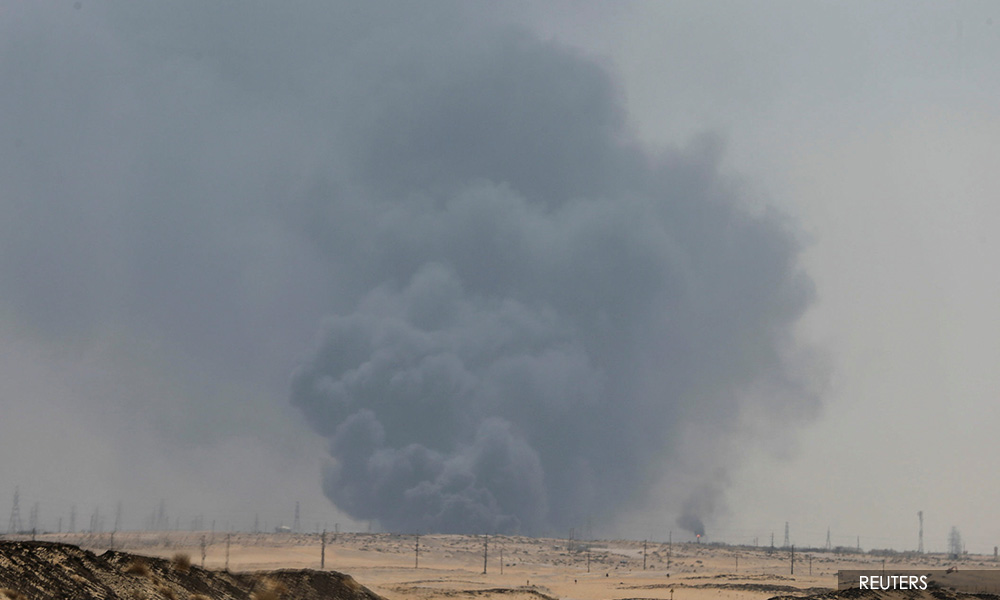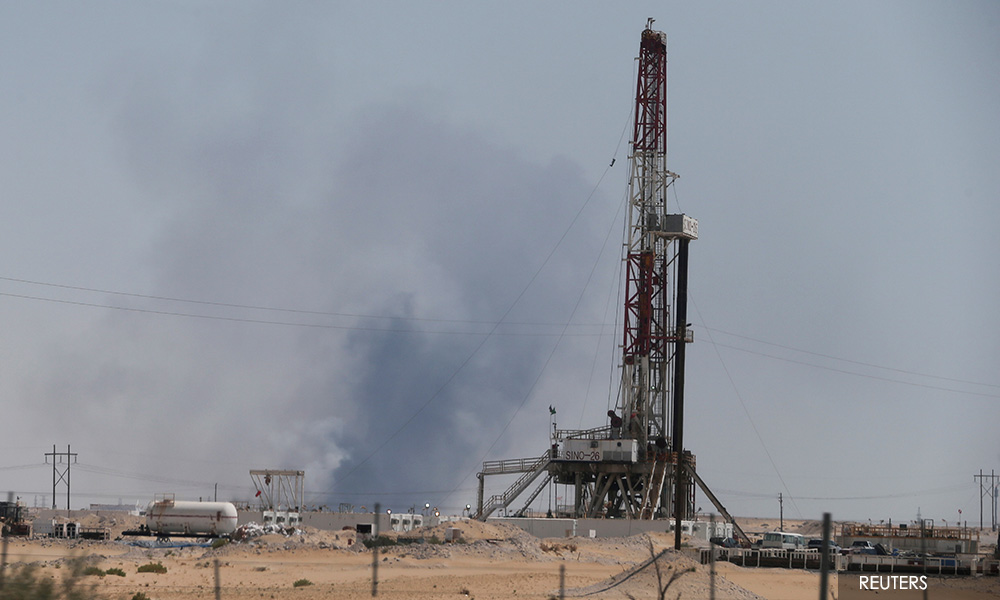The United States believes it knows who was behind the attacks on Saudi oil facilities and is “locked and loaded,” but is waiting for verification and for a Saudi assessment of responsibility before deciding how to proceed, US President Donald Trump said.
“Saudi Arabia oil supply was attacked. There is reason to believe that we know the culprit, are locked and loaded depending on verification, but are waiting to hear from the Kingdom as to who they believe was the cause of this attack, and under what terms we would proceed!” Trump said on Twitter. “PLENTY OF OIL!” he added in a subsequent Tweet.
Oil prices surged more than 15 percent to their highest level in nearly four months at the open yesterday, after the attack on Saudi Arabia’s oil facilities last Saturday, which knocked out more than five percent of the global oil supply.
Brent crude futures jumped more than 19 percent to a session high of US$71.95 (RM299.88) a barrel at the opening, while US crude futures surged more than 15 percent to a session high of US$63.34 (RM264) a barrel. Both benchmarks rose to the highest since May.
Prices were up about 12 percent by 6.50pm yesterday (6.50am today in Malaysia), as gains were capped after President Trump said he authorised the release of oil from the US Strategic Petroleum Reserve (SPR) if needed in a quantity to be determined because of the attack on Saudi’s facilities.
State oil giant Saudi Aramco said the attack cut output by 5.7 million barrels per day, at a time when Aramco is trying to ready itself for what is expected to be the world’s largest share sale.

Aramco gave no timeline for output resumption. A source close to the matter told Reuters the return to full oil capacity could take “weeks, not days.”
Saudi Arabia’s oil exports will continue as normal this week as the kingdom taps into stocks from its large storage facilities, an industry source briefed on the developments told Reuters.
“The surge in prices is the natural knee jerk reaction but the path ahead and ability to sustain at elevated levels remains dependent on the duration of the outage, the ability to meet export commitments through domestic drawdowns, demand elasticity at higher prices as well as government and agency policy,” said Michael Tran, managing director of energy strategy at RBC Capital Markets in New York.
“Even if the outage normalises quickly, the threat of sidelining nearly six percent of global oil production is no longer a hypothetical, a black swan or a fat tail. Welcome back, risk premium.”
The attack on plants in the heartland of Saudi Arabia’s oil industry, including the world’s biggest petroleum-processing facility, came from the direction of Iran, and cruise missiles may have been used, according to a senior US official.

“Saudi authorities have claimed to control the fires, but this falls far short of extinguishing them,” said Abhishek Kumar, head of analytics at Interfax Energy in London.
“The damage to facilities at Abqaiq and Khurais appears to be extensive, and it may be weeks before oil supplies are normalised,” Kumar said.
Saudi Arabia is set to become a significant buyer of refined products after attacks on Saturday, consultancy Energy Aspects said in a note.
State oil firm Saudi Aramco will likely buy significant quantities of gasoline, diesel and possibly fuel oil while cutting liquefied petroleum gas exports.
US gasoline futures jumped 11 percent, while US heating oil futures rose about 6.5 percent at the open.
- Reuters

